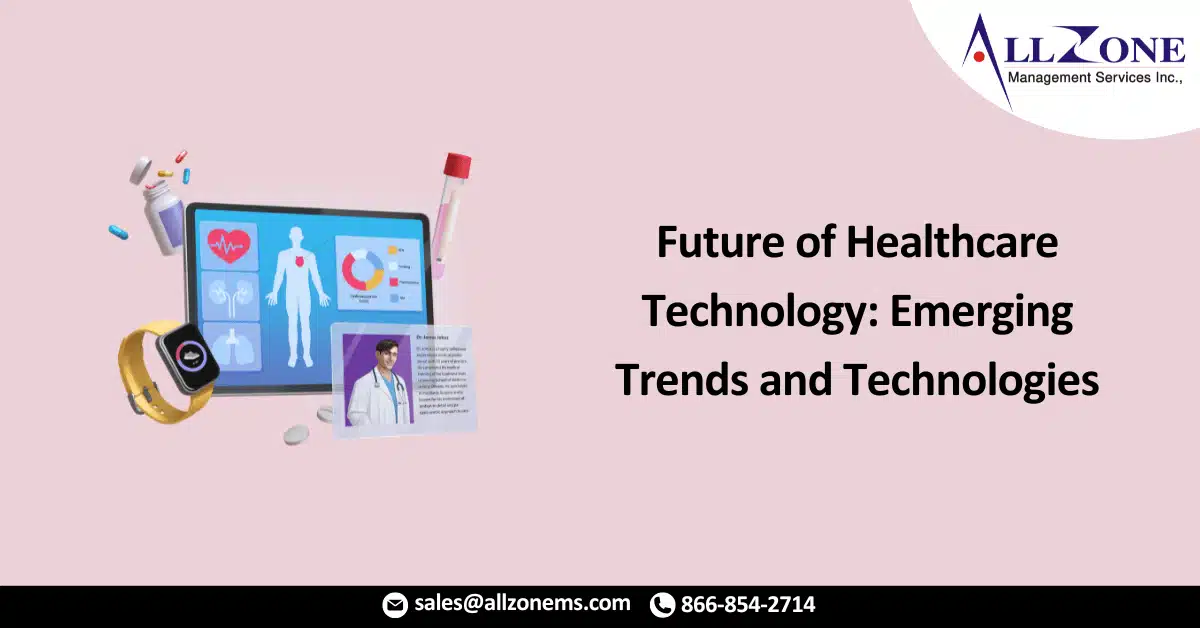The healthcare industry is on the brink of transformation, as a multitude of emerging technologies and trends, such as artificial intelligence, virtual reality, telehealth, and blockchain, are set to revolutionize it.
The pace of innovation in healthcare technology is relentless and shows no signs of decelerating. A myriad of emerging technologies and trends, such as artificial intelligence, virtual reality, telehealth, and blockchain, are positioned to revolutionize the healthcare industry. In this article, we will examine some of the most promising technologies and trends that are shaping the future of healthcare.
Artificial Intelligence (AI)
One of the most remarkable technologies in healthcare today is artificial intelligence. Its ability to analyze enormous quantities of patient data and recognize patterns that may not be immediately evident to healthcare providers can lead to more personalized treatment plans, early interventions, and improved patient outcomes. AI can also enhance the effectiveness of healthcare operations by streamlining administrative tasks and predicting staffing requirements, boosting overall efficiency.
Telehealth
The popularity of telehealth has been on the rise, and the COVID-19 pandemic has further accelerated its adoption. By enabling healthcare providers to offer virtual consultations and remotely monitor patients, telehealth minimizes the necessity for in-person appointments. Telehealth can be especially advantageous for patients with chronic illnesses who require frequent check-ins and those residing in remote areas or facing mobility challenges.
Virtual Reality (VR)
Virtual reality is a technology that is still in its infancy in healthcare, but its potential is enormous. VR can be utilized to generate immersive simulations of medical procedures, enabling healthcare providers to practice and enhance their skills. VR can also establish therapeutic environments for patients, such as virtual nature scenes for stress reduction or virtual reality games for pain management.
Blockchain
Blockchain technology has the potential to revolutionize the storage and sharing of healthcare data. By leveraging blockchain, healthcare organizations can establish a secure and decentralized database of patient records that is accessible to authorized parties while safeguarded against unauthorized access. This can enhance the accuracy and privacy of patient data, as well as the efficiency of healthcare operations.
Wearable Technology
Wearable technology, such as fitness trackers and smartwatches, has gained widespread acceptance among consumers and is now playing an ever more critical role in healthcare. Wearables can monitor a variety of health indicators, such as heart rate, sleep quality, and physical activity. This data can be utilized to offer more tailored care and to identify possible health concerns before they become more severe.
3D Printing
3D printing is yet another technology that is ready to revolutionize healthcare. With 3D printing, customized prosthetics, implants, and other medical devices can be created that cater to the specific needs of individual patients. 3D printing can also generate models of organs and other body parts for the purpose of surgical planning and training.
Conclusion
The outlook for healthcare technology is promising, with numerous emerging technologies and trends positioned to revolutionize the industry. Artificial intelligence, telehealth, virtual reality, blockchain, wearable technology, and 3D printing are just a few examples of the many technologies that are transforming healthcare. Patients can anticipate more personalized, convenient, and efficient care, while healthcare professionals can enjoy greater efficacy and patient satisfaction. With the ongoing evolution of healthcare technology, we can anticipate even more thrilling innovations on the horizon.

